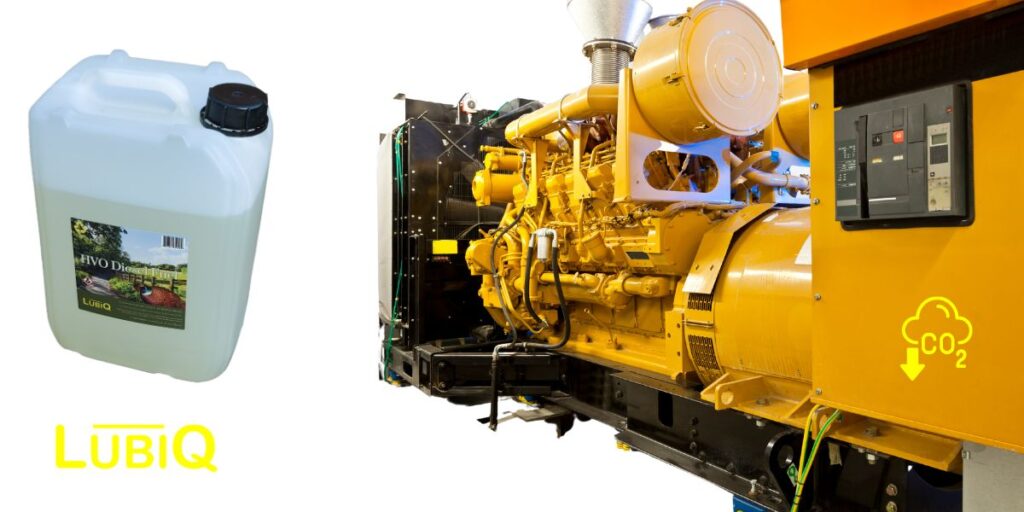What Is HVO Diesel?
We have set out to provide some answers to to common questions of what HVO is this in this blog. The letters ‘HVO’ mean hydrotreated vegetable oil, a renewable diesel fuel made from waste products.
HVO diesel is a paraffinic fuel that has physical properties more like kerosene than mineral diesel. With good cold flow characteristics and storage stability, this high-purity synthetic fuel also burns cleanly contains almost no sulphur and consequently has notably less odour than DERV. The logo on HVO fuel pumps is XTL.

Trials of HVO diesel by the Port Of London Authority, among others, have shown very little encrusted soot on exhaust valves and tests by MTU Friedrichshafen indicate a particulate matter reduction of 80% without damage to power output. HVO is also known as green or renewable diesel which complies with the EN 15940 specification.
Download a summary of the Port Of London authority’s report.
Due to HVO’s eco-friendly credentials and clean burn performance, it is useful to understand hydrotreated vegetable oil in a bit more depth; it is also often called renewable diesel.

Hydrotreating is a process whereby long chain molecules are cracked and a synthetic, stable, and consistent renewable diesel fuel is made from used cooking oils, waste animal fats, and fish waste.
Due to the recycling of waste products, the net greenhouse gas emissions when HVO is used in vehicles or for home heating boilers, are reduced by upto 90%, aiding your journey to net zero with zero vehicle modifcations!
Goodbye To Blocked Fuel Filters
Being a man-made and very pure fuel with a high cetane number, and being exceptionally clean burning means it is better for diesel engines in cars, vans, boats, tractors, and trucks and emits much less soot and NOx.
This biofuel offers substantially better long-term storage characteristics than FAME bio-diesel and will not grow algae in the storage tank or block fuel filters.
Any diesel engine can easily run on HVO diesel without modifications, and it can be mixed with standard diesel with no problems so it is simple, green, and clean.
Decarbonising The Easy Way
Would you like to calculate the carbon emissions you will save with using HVO? Head over to the GOV.UK website to use their handy calculator (you will save around 2.2kgs of CO2 emissions per litre you burn).
Please see a simple chart for the carbon reductions below:

How about in cold weather?
HVO performs excellently in cold weather and is used heavily in Scandinavia where there is more than one producer like Neste and UPM. Users can operate down to minus 25 degrees Celsius without flow issues or clouding.
A new domestic heating oil?
Because of its clean burn and circular economy features, it is likely that HVO will be used as a home and business heating fuel to replace mineral kerosene. In trials in the UK it has shown very little soot build up in more than 12 months of use in domestic oil boilers.

New installations of kerosene boilers will stop in 2030 so if you are wondering what is HVO diesel and can I use it instead of kerosene?
The answer is yes, absolutely you can. Some minor tweaks and alterations are likely to be needed with existing boilers. Please get in touch by sending an email to oil@lubiq.uk to discuss your needs.
Below is a video tour of the Neste Porvoo biorefinery where HVO is produced; it is now produced in the UK by Phillips 66 in Humberside.
